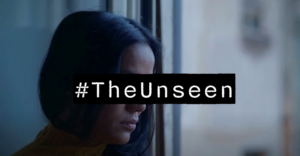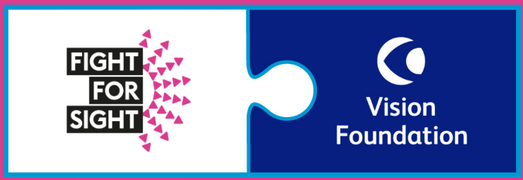
On Tuesday of 13th June we were proud to host our first round table session on ways key organisations can act on the findings from The Unseen.
The specific details of attendees and their experiences must be kept anonymous given their ongoing situations, so we spoke to Kerry Firth, our Social Impacts Officer, who helped to chair the event, about how it went: “We were so heartened by the way the day was focused on actionable solutions, rather than just talk,” enthused Kerry. “And it’s definitely going to be the first of many.”
Who was there?
We assembled victims of domestic abuse who also live with sight loss, as well as representatives of:
-
- The Met Police
- The Crown Prosecution Service (CPS)
- Refuge
- Beacon Vision
- Churches Housing Association of Dudley & Distric (CHADD)
- SafeLives
- Extant
- Safer London
- Standing Together
- Solace Womens Aid
- Time & Talents
- Cambridgeshire & Peterborough Domestic Abuse and Sexual Violence Partnership
We were gratified at the array of attendees we had, how much influence they wield and how engaged they were. As far as working groups go, this was designed to have maximum impact.
What was discussed?
Part 1: Voices & Experience
We opened the morning with two domestic violence and abuse (DVA) survivors who live with sight loss, sharing their experiences. Though both have met with many obstacles in accessing support, and were very direct about that, the tone of the speakers was passionately proactive.
It was clear that they understood there are gaps in the systems they’ve encountered and thought they could rely on – and why that would be – but were motivated to find solutions rather than tear things apart.
The experiences shared with attendees included:
- Family courts not making transcripts accessible, meaning visual impairment put you at an instant disadvantage in court.
- Social workers not having capacity to accommodate visually impaired people in shelters, and so suggesting that staying with an abusive carer could be preferable.
- Concerns about abusers breaking restraining orders being dismissed by police.
Part 2: Direct Action
Round tables can often result in talking around the problem, rather than prompting real, measurable change. This felt vastly different. Experiences like those listed above prompted attendees to give themselves clearly defined actions.
The solution-based discussion resulted in a clear action plan that included:
- Consulting professional bodies and revisiting policies to ensure that VI victims / survivors can speak to somebody on a one-to-one basis, in a safe space, without being in the presence of a carer.
- Encouraging the revision of widely used risk assessments, such as the DASH and DARA, to ensure they cover the nuances of disability-specific types of abuse.
- Ensure that the Domestic Abuse Matters training includes specific VI and disability-awareness modules.
- Encourage meaningful collaborations between sight-loss organisations and refuges, to ensure that spaces are accessible and staff are sufficiently trained to support VI victims / survivors
- Ensure survivors networks have VI representatives and create opportunities for these representatives to talk to relevant bodies and professionals, to influence changes in practice and policy.
How was the mood in the room?
Eden Blessings, Kerry Firth’s PA, was in attendance: “I had a lot of admiration for those survivors to stand up and share what they had been through. They were so strong.”
The response from people at The Met and CPS was similarly powerful, it was clear that they had been shown the scale of the gaps in their provision and the impact those gaps have on real people.
What comes next?
Everyone in attendance contributed to the action plan and one thing they all took from it was the need to reconvene to ensure it is implemented. This has gone beyond a round table to a working group.
Everyone there was passionate about being part of driving change for blind and partially sighted people who are victims of DVA. We will, of course, keep you updated on how the action plan translates into change in the coming months.
Attendee reactions:
Christina Warner, barrister:
“Amazing day yesterday contributing to a roundtable @Vision_Fdn @fightforsightUK on the impact of #DomesticAbuse on #Disabled victims, particularly, the visually impaired/blind community. Listened to survivors’ stories and shared ideas with @metpoliceuk and local authorities.”
Amanda Warburton Wynn, domestic abuse specialist:
“Amazing discussion event with @Vision_Fdn this morning about experiences of visually impaired victims/survivors of #DomesticAbuse. Some great work is going to come from this”.
Click here to find a summary of our recently approved DVA-related grants. >

